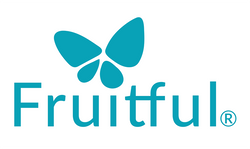
Why Omega 3 with DHA & EPA matters for Reproductive Health
Omega-3 fats are an essential nutrient for nearly all aspects of health, including reproduction. There are several forms of omega-3 fats. Most plant sources contain alpha linolenic acid (ALA), and fish, animal, and algae sources contain Docosahexaenoic Acid (DHA) and Eicosapentaenoic Acid (EPA). DHA and EPA are the active forms of omega-3 fats and are ready to be used by the body. ALA, on the other hand, needs to be converted into DHA and EPA in the body for it to be used. Unfortunately, this conversion process is inefficient, especially in those who eat animal products. There are also genetic mutations that make this conversion even more inefficient. To get the right amount of omega-3 from plant sources (with the exception of algae), you would need an incredible amount, which is unfeasible for most people. So, for most people, it is better to stick with direct sources of DHA and EPA.
EPA and DHA have two distinct functions within the body. EPA is needed for the formation of anti-inflammatory prostaglandins. These are hormone-like substances that have an anti-inflammatory effect and help to balance out inflammation.
DHA, on the other hand, is needed as a structural component for brain and nerve tissue.
The requirement of EPA and DHA changes throughout life. DHA is needed at a higher level in infancy, childhood, pre-conceptuality, during pregnancy, breastfeeding, and in later life. EPA is needed for normal adulthood that doesn't fit into any of the previous categories.
Why is omega-3 needed for reproductive health?
Anti-inflammatory Prostaglandins: Anti-inflammatory prostaglandins help to regulate sex hormones, which have a positive influence on reproduction. A low inflammation state may also increase the chance of embryo implantation by impacting the uterine environment and increasing its receptivity to the embryo (1).
Egg quality and ovarian function: Studies show that DHA is used by the egg cell membrane and for egg maturation and function, as well as fertilization. DHA is particularly needed as women age (2).
Needed for fetal brain: Maternal intake of DHA contributes to the normal brain development of the fetus and breastfed infants. This is because DHA is a structural component of the brain, so it is essential that pregnant and breastfeeding women supplement with it.
Incorporated into Sperm: Omega-3 fats are one of the most essential parts of the sperm membrane. Research has found it to affect sperm motility, membrane fluidity, and the fertile potential of sperm cells. In research, higher levels of omega-3 have been associated with better semen parameters, including sperm count, motility, and morphology in men with low sperm count (3).
Blood Flow: EPA and DHA contribute to the normal function of the heart. This is because it helps to keep the blood thin, which also has benefits for fertility. Better blood flow to the testes and uterus means there is more nutrition going to these organs, an essential factor for fertility.
Why Algae Oil is Superior
Historically, fish oil was used as a source of EPA and DHA. Recently, however, algae oil has been approved for human consumption. Algae are the original source of EPA and DHA. Fish get their EPA and DHA by eating other fish that eat algae. It makes complete sense to go straight to the source and harvest algae for its EPA and DHA. There are many reasons that this makes sense and is actually better for your health than fish oil.
Studies conclude that the EPA and DHA in algae oil are just as good for you, if not better for you, as the EPA and DHA in fish oil. This research is important, especially when it comes to pregnant mothers (4).
Purity: One of the problems with fish oil is its contents of pollutants and forever chemicals such as PCBs and PBDEs. These toxins don't go away and are found in fish. As the sea becomes polluted, so do the fish. Even after purification of fish oil, trace amounts still exist. Research has concluded that all fish are contaminated. Algae is farmed in clean water free from pollutants, making algae oil naturally clean (5, 6, 7).
Sustainability: The lack of pollutants in algae oil vs fish oil should be enough to encourage anyone to switch to algae oil. But there are other benefits of choosing algae oil. Overfishing is a concern for our oceans. Up to 70% of fishing is purely for the production of fish oil. If everyone switched to algae oil, there would be 70% more fish in the sea. Fishing also causes a huge problem with plastic pollution in the ocean. Up to 46% of the plastic in the sea is derived from fishing activities (8,9).
In addition, algae farming helps improve the oxygen-carbon dioxide ratio in the air. Algae produce as much as 3 times the amount of oxygen that trees produce per square metre(10).
Conclusion
Omega-3 is an essential nutrient for fertility and reproduction in both men and women. Algae oil is the best choice due to its lack of pollutants and its active form of omega-3 DHA and EPA. Algae oil also has significant environmental benefits, so it benefits both the human body and the planet.
References
1. Nonsteroidal anti‐inflammatory drugs for assisted reproductive technology - PMC
3. Nutrition, genetic variation and male fertility - PMC
4. AGRIS+2pure.atu.ie+2ScienceDirect+2ScienceDirect
5. https://pubmed.ncbi.nlm.nih.gov/20496249/
6. https://www.tandfonline.com/doi/abs/10.1080/02652030600660827
7. https://ift.onlinelibrary.wiley.com/doi/abs/10.1111/j.1365-2621.2003.tb07042.x
9. https://pmc.ncbi.nlm.nih.gov/articles/PMC11482318/#:~:text=INTRODUCTION,world%20(5%2C%206). https://ourworldindata.org/plastic-great-pacific-garbage



